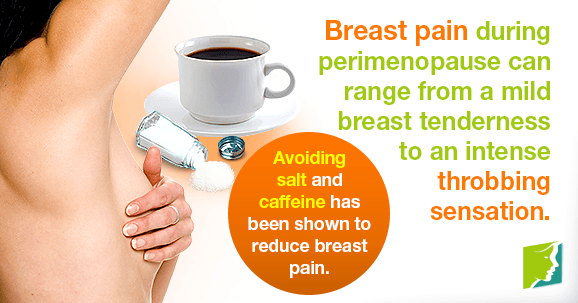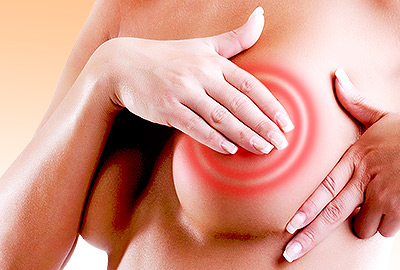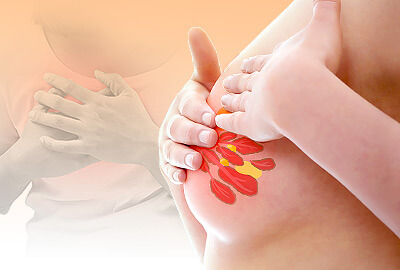Breast pain during perimenopause - the years leading up to a woman's last period - is very common, although it can affect other age groups, too. In fact, around two thirds of all women will experience it at some point in their lives. Pain can range from a mild breast tenderness to an intense burning or throbbing sensation. Although breast pain during perimenopause is common, it does not have to be inevitable. Read on to learn about some causes and solutions to this problem.
Causes
There are several causes of breast pain that are related to perimenopause, including:
Hormones
Breast pain during perimenopause is mostly due to hormonal imbalances. During this time, estrogen and progesterone levels are erratic and fluctuate, getting ready for a gradual decline until production reaches a consistently low level after menopause. This drop in hormone levels can cause soreness or inflammation of the breast tissue, leading to breast pain of varying severity.
Certain medications
Perimenopause generally occurs between the ages of 45 - 55, and this coincides with the time that women are more likely to suffer from certain conditions, such as depression or cardiovascular disease. Sometimes, even though the medications are helping the conditions for which they are designed, they have breast pain as a side effect during perimenopause.
Solutions
No matter what the cause, there are ways to ease breast pain. The remedies that work will differ from woman to woman, but there are some that have been shown to work in many cases:
Dietary changes
Breast pain during perimenopause can often be controlled through adoption of a diet low in fat and high in fiber. Blood sugar also needs to be normalized to reduce breast pain, so it is essential to replace refined carbohydrates with whole grain options. In addition, avoiding salt and caffeine has been shown to reduce breast swelling and tenderness.
Exercise
As previously mentioned, reducing breast pain during perimenopause relies on stabilizing the levels of blood sugar, and exercise is one of the best ways to do this. Regular exercise will help decrease the fluctuations of hormones too, and the result should be a long-term decrease in the frequency and intensity of breast pain during perimenopause. However, exercise will only exacerbate breast pain if they are put under stress, and so a well-fitting sports bra is highly important. Even when you are resting, your bra should be supportive without digging into your chest.
Breast pain during perimenopause is felt by many women across the globe, and it is rarely a cause for concern. Lifestyle changes are the safest, easiest, and healthiest way to rid yourself of breast pain, but if the discomfort persists, then it is a good idea to talk to your doctor to rule out any other underlying conditions.
Sources
- Breast Cancer Care. (2013). Breast pain. Retrieved October 2, 2014, from http://www.breastcancercare.org.uk/breast-cancer-information/benign-breast-conditions/breast-pain#noncyclical
- National Breast Cancer Foundation. (2012). Breast Pain. Retrieved October 2, 2014, from http://www.nationalbreastcancer.org/breast-pain
- National Institutes of Health. (2012). Breast pain. Retrieved October 2, 2014, from http://www.nlm.nih.gov/medlineplus/ency/article/003152.htm




